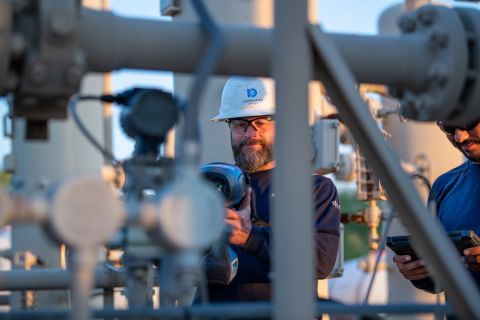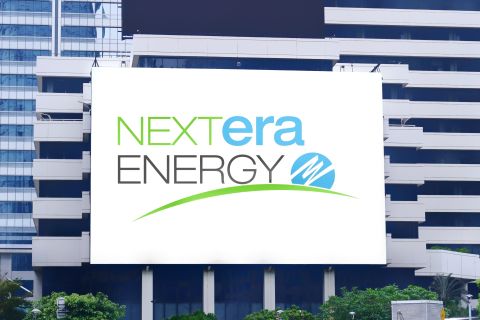Coastal Corp. will merge with El Paso Energy Corp. in a $16-billion deal that includes El Paso's assumption of $6 billion of Coastal ebt and preferred stock. The all-stock deal will expand El Paso's already substantial U.S. natural gas pipeline network and build its gas and electric power marketing business further. It also will add petroleum refining and marketing and coal, two businesses that generate lower returns to shareholders, to the Houston diversified energy supplier's operations for at least two years after the deal closes, which is expected in the fourth quarter. That prospect, combined with the dilutive effect of El Paso's plan to issue 269 million new common shares to complete the deal, made the company's common stock drop from the $37 range to around $33 after the announcement. Coastal's common shares climbed from $35.75 to the $38 range. The combination will have a total enterprise value of more than $32 billion and an equity value of more than $19 billion. "With this merger, El Paso will become the only company that is one of the top five companies in every sector of the wholesale natural gas and power arena, including natural gas transmission, production, gathering and processing, marketing and power generation," said William A. Wise, El Paso president and chief executive. "As power generation becomes the largest consumer of natural gas, we believe integration along the full value chain will enhance profitability in each segment of our business." The El Paso-Coastal combination will be the nation's third-largest gas producer. Coastal contributes E&P assets in the Rockies and South Texas; El Paso contributes E&P assets it recently acquired from Sonat Inc. El Paso's approach to its upstream unit differs significantly from what it would be if it was a free-standing, independent producer. "We're finding more and more that equity production is a very valuable asset in the chain of U.S. gas production," Wise said. "Power generation will become the largest consumer of natural gas in the next five years. Having production will be important. The key is to run it with a good return and free cash flow." The two upstream operations combined will produce between 1.6- and 1.7 billion cu. ft. per day of natural gas and slightly more than 100,000 bbl. per day of gas liquids from about 5.4 trillion cu. ft. equivalent of pro forma 1999 year-end reserves. "This will not be an independent E&P company. It will be a $33-million aggregation of the natural gas value chain. As I told people when we bought Sonat's E&P company, we don't have to grow production like an independent. That's the black hole in which a lot of capital disappears," Wise said. Coastal did not budget aggressively for exploration and production in 2000. "Our aggressive spending occurred the prior year, when we spent a considerable amount of money to accumulate properties to develop when prices go up," said David A. Arledge, Coastal chairman and president. "We have the inventory now to do that when commodity prices are reasonable. With the demand coming from power generation, this company will want to be hedged from the wellhead down and lock in business plans along the complete value chain. If an E&P company is a member of a full chain of gas assets, your job becomes to provide gas at reasonable prices." Stuart J. Wagner, energy analyst with Petrie Parkman & Co. in Denver, said, "The high quality of both companies' operations and strategies, along with the almost perfect fit of the two asset bases, certainly qualifies the new entity as the leading diversified energy company in North America." Wise predicts that the merger will be accretive to El Paso's earnings per share immediately and add more than 5% to earnings per share in both 2001 and 2002. Donaldson, Lufkin & Jenrette Securities Corp. advised El Paso in the deal, while Merrill Lynch & Co. advised Coastal. -Nick Snow
Recommended Reading
Keeping it Tight: Diversified Energy Clamps Down on Methane Emissions
2024-04-24 - Diversified Energy wants to educate on emission reduction successes while debunking junk science.
Solar Panel Tariff, AD/CVD Speculation No Concern for NextEra
2024-04-24 - NextEra Energy CEO John Ketchum addressed speculation regarding solar panel tariffs and antidumping and countervailing duties on its latest earnings call.
NextEra Energy Dials Up Solar as Power Demand Grows
2024-04-23 - NextEra’s renewable energy arm added about 2,765 megawatts to its backlog in first-quarter 2024, marking its second-best quarter for renewables — and the best for solar and storage origination.
Halliburton’s Low-key M&A Strategy Remains Unchanged
2024-04-23 - Halliburton CEO Jeff Miller says expected organic growth generates more shareholder value than following consolidation trends, such as chief rival SLB’s plans to buy ChampionX.
Enverus: 1Q Upstream Deals Hit $51B, but Consolidation is Slowing
2024-04-23 - Oil and gas dealmaking continued at a high clip in the first quarter, especially in the Permian Basin. But a thinning list of potential takeout targets, and an invigorated Federal Trade Commission, are chilling the red-hot M&A market.





